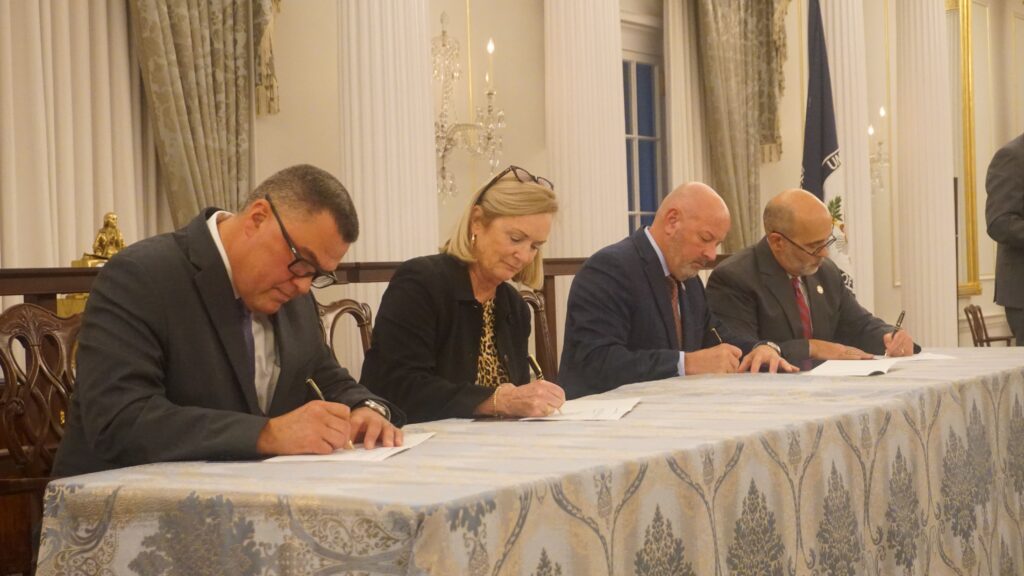News

A Historic Step Forward: OSAC Board and The Security Foundation (TSF) Join Forces with the U.S. State Department to Strengthen Security
In late November, as the holiday season approached, the U.S. State Department’s OSAC Board and The Security Foundation (TSF) made history by signing Memorandums of Understanding (MOU), marking the official launch of a transformative Public-Private Partnership (PPP). This milestone marks a significant step forward in safeguarding U.S. citizens and interests, both at home and abroad.
The Power of Public-Private Partnerships
Public-Private Partnerships (PPPs) combine the strengths of government and private sector innovation to tackle complex security challenges. By blending the resources, authority, and expertise of both sectors, PPPs provide powerful solutions in areas like national defense, counterterrorism, cybersecurity, and emergency response.
TSF’s Vital Role
As a trusted convener, The Security Foundation (TSF) plays a central role in fostering collaboration between government agencies and private organizations. In 2024 alone, TSF supported 67 OSAC events and 18 DSAC events, helping build a robust network of professionals working to keep the U.S. safe. Principal Deputy Assistant Secretary and Director of Diplomatic Security Service, Carlos Matus emphasized TSF’s integral role in this partnership, stating, “TSF has played a significant role in developing and sustaining OSAC member services since its inception in 2011 and will continue to be imperative to the growth of this partnership.”
With the MOU in place, the stage is set for even greater collaboration in the years ahead.
Looking Ahead
This MOU is more than just a formal agreement—it’s a shared commitment to a safer future. By working together, OSAC, TSF, and our partners are taking meaningful steps toward strengthening security and ensuring that we are better prepared to protect what matters most.
Looking ahead to 2025 and beyond, this partnership is set to drive innovation, strengthen collaboration, and provide key solutions to the security challenges of the future.
